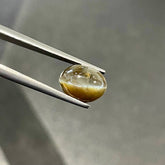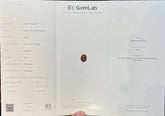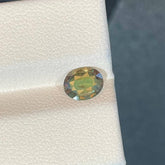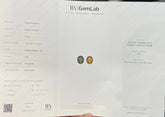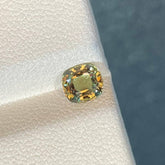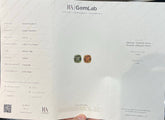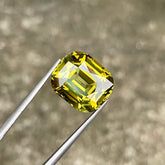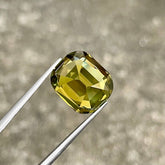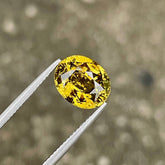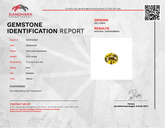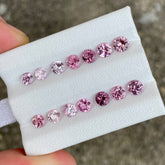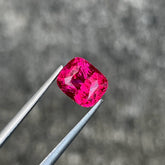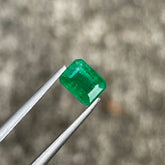Pearls as Investments: Evaluating the Value and Rarity of Pearls
The gems of the seas have been one of the most treasured and popular gems to invest in for centuries. While some types of pearls are definitely more valuable than others, there are many other factors that contribute to determining the value of a pearl. Read on to find out what they are.
Determining if a Pearl Is Real
Because they are a product of nature, real pearls will have some imperfections. They come in a variety of different sizes, so if you have a pearl necklace with gems that are the exact same size, they are probably imitation pearls. Imitation pearls are manufactured by humans, and they are made from plastic, glass or ceramic and painted so that they appear to have a pearl-like luster. Real pearls usually display different colors and deep luster, depending on the light, while fake pearls look more flat, without any depth or shades. Real gems are often heavier than they appear, and they carry more weight than the imitation version. If you are still not convinced that your pearls are real, you can always perform the “tooth test” by gently rubbing the pearls against your front teeth. If they feel like they have a sand-like texture, they are probably real. Fake pearls will feel smooth like plastic or glass.

Determining the Value of Pearls
If you are trying to learn the value of those beautiful birthstone earrings you own, or that dark pearl necklace you received as a gift, you need to understand how pearls are valued. Because there is no standardized grading system used to evaluate pearls, every seller is different and they all have their own grading system. This is why it is crucial that you do your research before you purchase pearls and only shop from reputable brands, that are transparent about the way they evaluate pearls. Generally, the value of a pearl varies greatly depending on multiple factors, such as the type of the pearl, its size, the color, nacre quality, shape and origin.
- Natural pearls are more valuable than cultured pearls.
- South Sea Pearls are the most valuable type of pearls.
- The more lustrous the gem, the more value it holds.
- Pearls that are rounder are more valuable than other shapes.
- Larger pearls are more valuable than smaller ones.
- Pearls that have more visible imperfections are less valuable.
Natural vs. Cultured
Natural pearls are gems produced by oysters and mollusks without any human intervention. These natural pearls have become so rare due to all the oyster diving, that it is speculated that these gems will unfortunately soon become extinct. On the other hand, cultured pearls are 100% real pearls, but that have been created using a pearl farming technique. While they are less rare than natural pearls, these gems can be very valuable and worth investing in. Wild pearls come with very high price tags, but are not usually sold in retail.
Pearl Nacre Thickness
Something to keep in mind while shopping for pearls: nacre thickness is probably the most important factor in determining the value of a pearl, as it creates a foundation for all other value factors. A pearl which has a thick layer of nacre will not only be much more durable than pearls with thin-layered nacres, but they will also look much more beautiful and lustrous. South Sea pearls and Tahitian pearls have very thick nacre layers, which makes these types of pearls not only stunning, but also valuable.

Pearl Surface Quality
Surface quality refers to how smooth and free from inclusions a pearl is. The more noticeable the imperfections of a gem, the less value it holds. Surface quality blemishes refer to any abrasions or scratches, bumps, spots or wrinkles.
Pearl Luster
Luster is a very important factor to consider when determining the value of a pearl. After all, what is a pearl without its luster? The quality of the pearl's luster is determined by the quality of the nacre. The smoother the layers, the more beautiful the glow.
Pearl Size
Just like with diamonds, when it comes to pearls, the bigger the better. Larger pearls are harder to cultivate and produce, which makes them more rare and therefore expensive when compared to smaller gems. And, of course, the type of jewelry you purchase makes a big difference. For example, earrings will be less expensive than a pearl necklace as they only have a few gems, compared to the multitude of pearls used in a necklace.
Pearl Shape
The most popular shape for these lustrous gems, and the poster image for the classic pearl necklace, is the perfectly round pearl. Drops, Buttons and Baroques hold the next 3 places. To put it simply, the more symmetrical a pearl is, the more value it holds, especially when it comes to timeless pieces of fine jewelry.
Pearl Color
When it comes to color, the more saturated the color and visible undertones, the more valuable the pearl. Some overtones are rarer, therefore more valuable than others. For example, South Sea pearls with a hint of a rose overtone are rarer than the pearls with silver overtones, which makes these gems more valuable.
The Cost of Different Types of Pearls
While a classic strand of white Freshwater pearls is worth somewhere around $100 and up, you could pay even $10,000 for an Akoya pearl necklace. However, a necklace made from large, flawless South Sea pearls could be worth $100,000 or even more. South Sea pearls are the most valuable type of pearls, due to their rarity and size. The South Sea gems usually come in shades of white and gold.

South Sea Pearls
South Sea pearls are the largest type of pearls on the market and also the most expensive and valuable. These gems come in a few different colors, with the most expensive ones being the gold-colored pearls. The price for a classic strand of South Sea pearls ranges from $1,000 to over $100,000.
Tahitian Pearls
Dark and exotic, Tahitian pearls have some of the most unique and amazing pearl colors out there. A single strand of these beauties can cost from $500 to more than $25,000, depending on their quality and size.
Akoya Pearls
Akoya pearls are the smallest type of cultured pearls out there. These gems are those classic round, white pearls, we all know and love. The cost for a strand of Akoya pearls ranges between $300 to $10,000, and sometimes even more.
Freshwater Pearls
Freshwater pearls are the least expensive type of pearls on the market and come in a plethora of shapes, sizes and colors. While round freshwater pearls may look very similar (if not identical) to Akoya pearls, they are more affordable. A single strand of these beauties costs somewhere between $100 to $2,000.

Maintaining the Value of Your Pearls
Real pearls are considered to be fine jewelry, on the same level as precious metals and other precious gems such as diamonds, emeralds or sapphires. Depending on the type of pearl, these gems can maintain or increase in value for years, but they can start depreciating if they are not stored properly, some pearls aging faster than others. Real pearls change their color with time, when they start aging. White pearls will slowly become yellow, which will make them lose value. To preserve your pearls in pristine condition and maintain their value, make sure you protect them from scratches and discoloration. Keep them away from chemicals such as perfume or hairspray and always clean your pearl jewelry with a dry cloth after each wear.
Final Thoughts
Buying gemstones as an investment is always a good idea as there will always be a high demand for high-quality gems. This also applies to pearls. While the value of a pearl varies depending on factors such as the type of the pearl, its size, the color, nacre quality or shape, the type of jewelry you purchase is also a significant factor. But whatever you choose, make sure you take good care of your precious pearls, so they maintain their value for many years to come.
